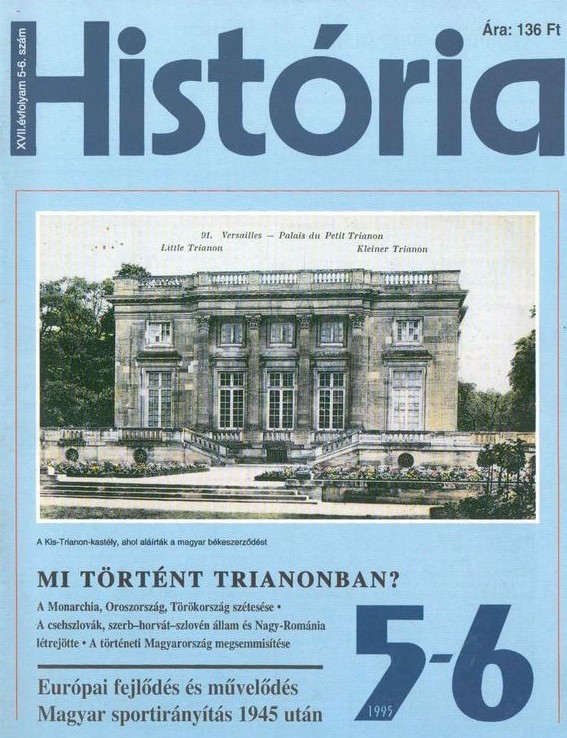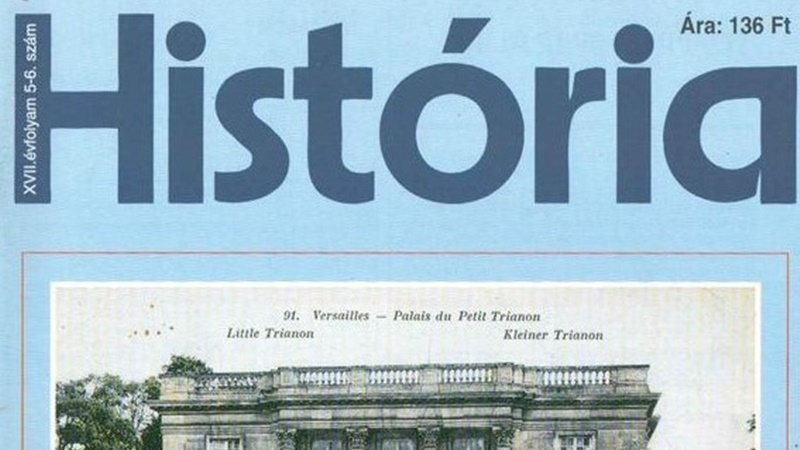Krizmanics Réka angol nyelvű írása az East European Politics and Societies-ben jelent meg (November 2021).
A tanulmány absztraktja:
The main purpose of this article is to show how the changing dynamics of governmental memory politics and shifting institutional frameworks influenced the space for and type of discourses about Trianon in popular historiography in the decades spanning 1979 to 2010. I first introduce the way academic historiography addressed the issue of the peace treaty and its consequences. Second, I situate popular historical discussions about Trianon within the broader landscape of historical knowledge production. Analyzing publication patterns of História (1978) and Rubicon (1989), the two most widely read mainstream popular historical journals, complemented with a discussion of Trianoni Szemle, a journal established for the purpose of discussing this single topic, I reflect both on the journals’ (self-)positioning under changing currents and the intensity of governmental interest and control. As the centennial of the signing of the peace treaty draws near, such a case study provides an opportunity to observe symptomatic mechanisms of illiberal memory politics in juxtaposition to its authoritarian and democratic predecessors.







